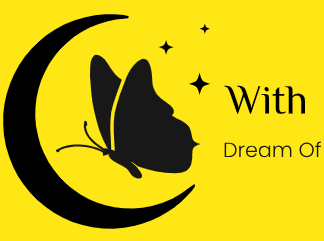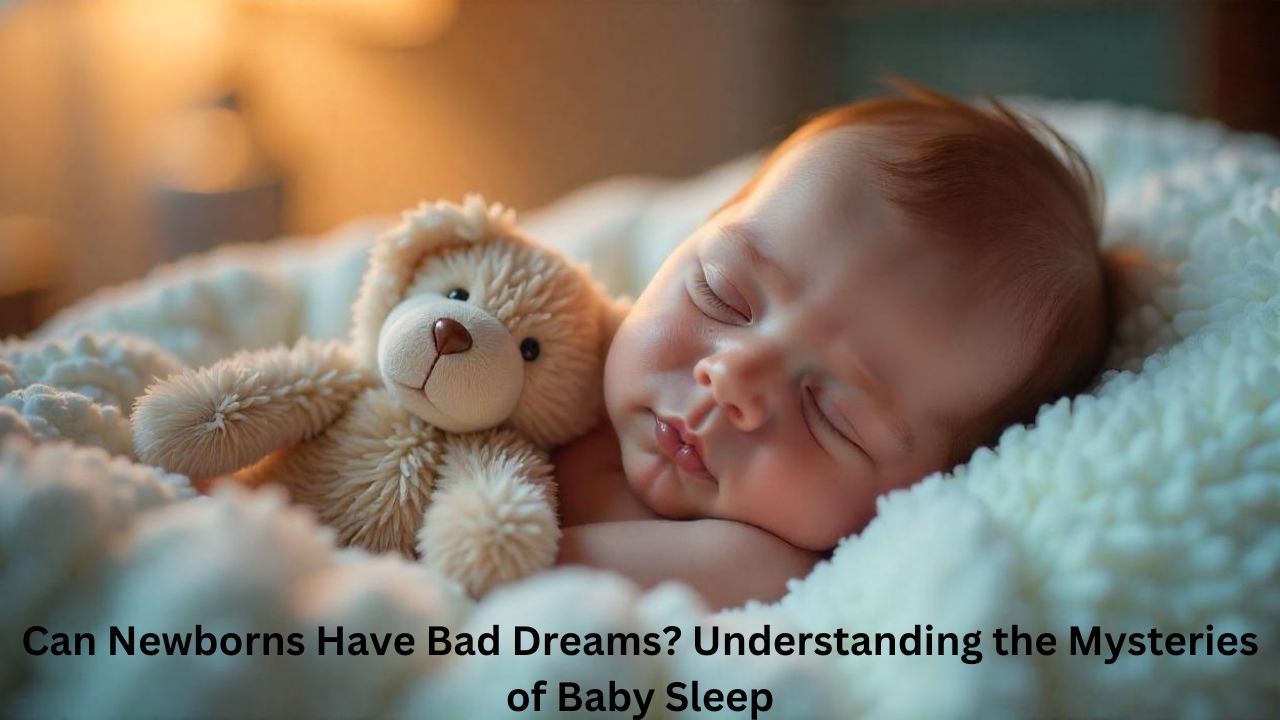Do Newborns Have Bad Dreams? Baby Sleep Insights, Newborns spend most of their time sleeping, leaving many parents wondering, can newborns have bad dreams? The sight of your little one twitching or whimpering in their sleep can be heart-wrenching, especially if you’re unsure whether they’re in distress. Understanding infant sleep patterns can help soothe concerns and ensure your baby’s rest remains peaceful.
Babies experience various stages of sleep, and during this time, their brains develop rapidly. But does this mean newborns have nightmares like adults do? Let’s dive into this fascinating topic to uncover the truth behind newborn dreams, sleep behaviors, and what those tiny movements might signify.
Newborn Sleep Basics: The First Few Months of Life
During the first few months, newborns have unique sleep patterns that differ greatly from adults. Infants typically sleep between 14 to 17 hours each day, spread over short naps throughout the day and night. Their sleep cycles are shorter, usually lasting around 50 to 60 minutes, with a significant portion spent in REM (Rapid Eye Movement) sleep.
REM sleep, known for vivid dreaming in adults, plays a crucial role in brain development for babies. However, just because newborns experience REM sleep doesn’t necessarily mean they’re dreaming, let alone having nightmares. So, what do those restless movements or sudden cries signify?
The Science Behind Infant Sleep Stages
To understand if newborns can have bad dreams, it’s essential to explore the science behind their sleep stages. Infants have two primary sleep states: active sleep (similar to REM sleep) and quiet sleep (comparable to non-REM sleep in adults). Babies enter active sleep first, where they may move their limbs, make noises, or even open their eyes briefly.
During active sleep, the brain engages in significant growth and development. Babies consolidate memories, process new information, and stimulate their developing nervous system. While it may seem like they’re reacting to dreams, many scientists believe these movements are simply a reflection of their immature nervous system adjusting to the outside world.
Do Newborns Really Dream? What Experts Believe
Experts remain divided on whether newborns actually dream. While some researchers suggest that babies dream from birth, others argue that infants lack the cognitive ability to form complex dreams. Newborns primarily focus on essential survival functions, such as feeding, bonding, and learning to recognize their environment.
The rapid brain development that occurs during REM sleep likely supports learning and sensory processing. While newborns may not have fully formed dreams or nightmares, they likely experience sensations and images related to their daily experiences. However, these are not as vivid or complex as the dreams older children and adults experience.
What Causes a Newborn to Twitch or Cry in Their Sleep?
Parents often notice their newborn twitching, smiling, or even whimpering while asleep, raising the question of whether these reactions stem from bad dreams. However, such movements are often involuntary. During active sleep, a baby’s nervous system undergoes significant activity, which may cause reflexive muscle movements.
Crying or fussing during sleep may also occur due to digestive discomfort, hunger, or a need for comfort. Babies have a limited way of expressing themselves, so it’s more likely they’re reacting to physical sensations than nightmares. Ensuring they are fed, comfortable, and dry can often resolve these nighttime stirrings.
Can Newborns Have Bad Dreams? Decoding Sleep Behaviors
Given the limited understanding of how infants process the world, it’s unlikely that newborns have bad dreams the same way adults do. Adults experience nightmares that are often linked to past memories, fears, or anxieties. In contrast, newborns have not yet developed the mental framework to understand fear or imagine scary scenarios.
However, as they age, babies start to develop emotional responses to their surroundings. Around 6 to 12 months, they may begin to experience simple dreams influenced by their daily experiences. Yet, during the newborn stage, it remains uncertain whether they have nightmares that cause distress.
Why Your Newborn Might Seem Distressed at Night
It’s natural for parents to worry if their baby appears unsettled during sleep. Sometimes, newborns seem to cry or grimace without waking up fully. This behavior might stem from various factors unrelated to dreaming. Newborns have underdeveloped nervous systems, and their sleep can appear fragmented or irregular.
Additionally, gas, colic, or even minor discomfort can cause babies to squirm or make noises during sleep. Parents can help alleviate discomfort by ensuring their baby’s sleeping environment is comfortable and by following a gentle bedtime routine.
How to Soothe a Restless Newborn at Night
When your newborn seems unsettled at night, a few comforting strategies can help them relax. Swaddling, rocking, or simply holding them can make them feel secure. White noise machines or gentle lullabies can also provide a calming effect, mimicking the sounds babies heard in the womb.
Pay attention to cues, like hunger or a wet diaper, as addressing these needs may ease their discomfort. Consistent bedtime routines signal to your baby that it’s time to wind down, which can improve overall sleep quality.
The Role of Parental Intuition in Recognizing Sleep Needs
Trust your instincts as a parent when it comes to your baby’s sleep. If you notice unusual behaviors during sleep, like intense crying or sudden jerking, it may indicate something other than bad dreams. In these cases, consider speaking with your pediatrician to rule out potential health issues.
Remember, newborns often rely on their parents to create a safe sleep environment. Offering comfort and reassurance not only helps your baby rest better but also strengthens the bond between you.
When Do Babies Start Having Real Dreams?
As babies grow and develop, their dreams become more structured and vivid. By the time they reach toddlerhood, children’s brains are capable of more complex dreaming. These dreams may reflect their daily experiences, fears, and joys.
However, during the first few months of life, it’s unlikely that newborns can have bad dreams with specific storylines. Babies primarily focus on exploring their new world and bonding with their caregivers.
The Importance of Healthy Sleep Habits for Infants
Encouraging healthy sleep habits from the start plays a critical role in your baby’s overall development. Establishing consistent nap and bedtime routines can help regulate their sleep cycles and reduce nighttime fussiness. Keep in mind that a calm, dimly lit environment promotes better sleep.
Newborns thrive on predictability, so establishing a gentle wind-down routine can create positive sleep associations. Over time, your baby will recognize these cues and begin to settle more easily, making sleepless nights less frequent.
Understanding Normal Sleep Behaviors in Newborns
Parents often feel anxious when they witness their newborn exhibiting strange sleep behaviors. However, it’s essential to recognize that most of these actions are normal. Babies may grimace, twitch, or even let out a small cry during active sleep, but these are generally not indicators of bad dreams.
Infants are adjusting to their new surroundings, and their nervous systems are rapidly developing. The brain remains highly active during sleep, contributing to movements and sounds that might appear concerning at first glance.
How to Create a Safe and Comfortable Sleeping Environment
Ensuring your baby’s sleep environment is safe and cozy can enhance their sleep quality. Use breathable bedding, and keep the crib free from loose blankets, toys, or pillows. Maintaining a comfortable room temperature and using a swaddle or sleep sack can prevent your baby from getting too hot or cold.
Positioning your baby on their back, as recommended by pediatricians, reduces the risk of SIDS (Sudden Infant Death Syndrome). This safe sleep practice allows parents to rest easier, knowing their baby is sleeping securely.
The Bottom Line: Can Newborns Really Have Bad Dreams?
While it’s natural to worry about whether your newborn experiences bad dreams, the evidence suggests otherwise. Babies process a world full of new sensations and may react to physical discomfort, but they likely lack the cognitive ability to experience nightmares. Understanding the difference between normal sleep behaviors and genuine distress can help you provide the comfort your baby needs.
Frequently Asked Questions
Can newborns have bad dreams?
No, newborns do not have the cognitive ability to experience bad dreams like adults do. Their sleep reactions are likely due to physical sensations or reflexes.
Why does my newborn cry while asleep?
Newborns might cry during sleep due to hunger, gas, or discomfort. These are normal reactions as they adjust to their new environment.
How can I comfort my baby during sleep?
Swaddling, gentle rocking, or using a white noise machine can help soothe your newborn and create a sense of security.
When do babies start dreaming?
Babies may start having simple dreams as they reach the toddler stage. However, newborns primarily focus on sensory processing and growth.
Is twitching during sleep normal for newborns?
Yes, twitching is normal and often occurs during active sleep. It results from an immature nervous system that is still developing.
Should I wake my baby if they cry in their sleep?
If your baby cries briefly and then settles, it’s best to let them continue sleeping. If they seem distressed, check for hunger or discomfort.











